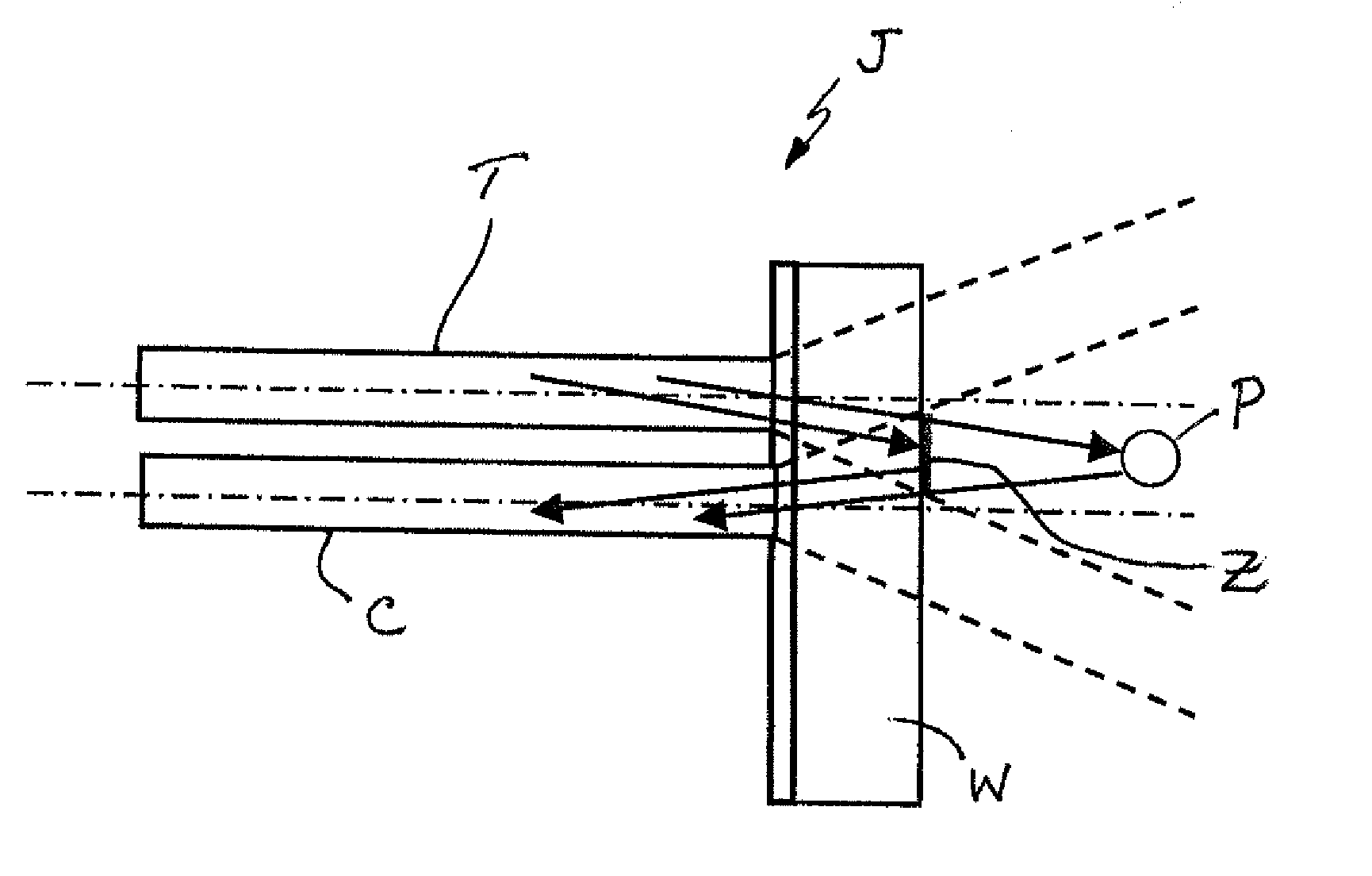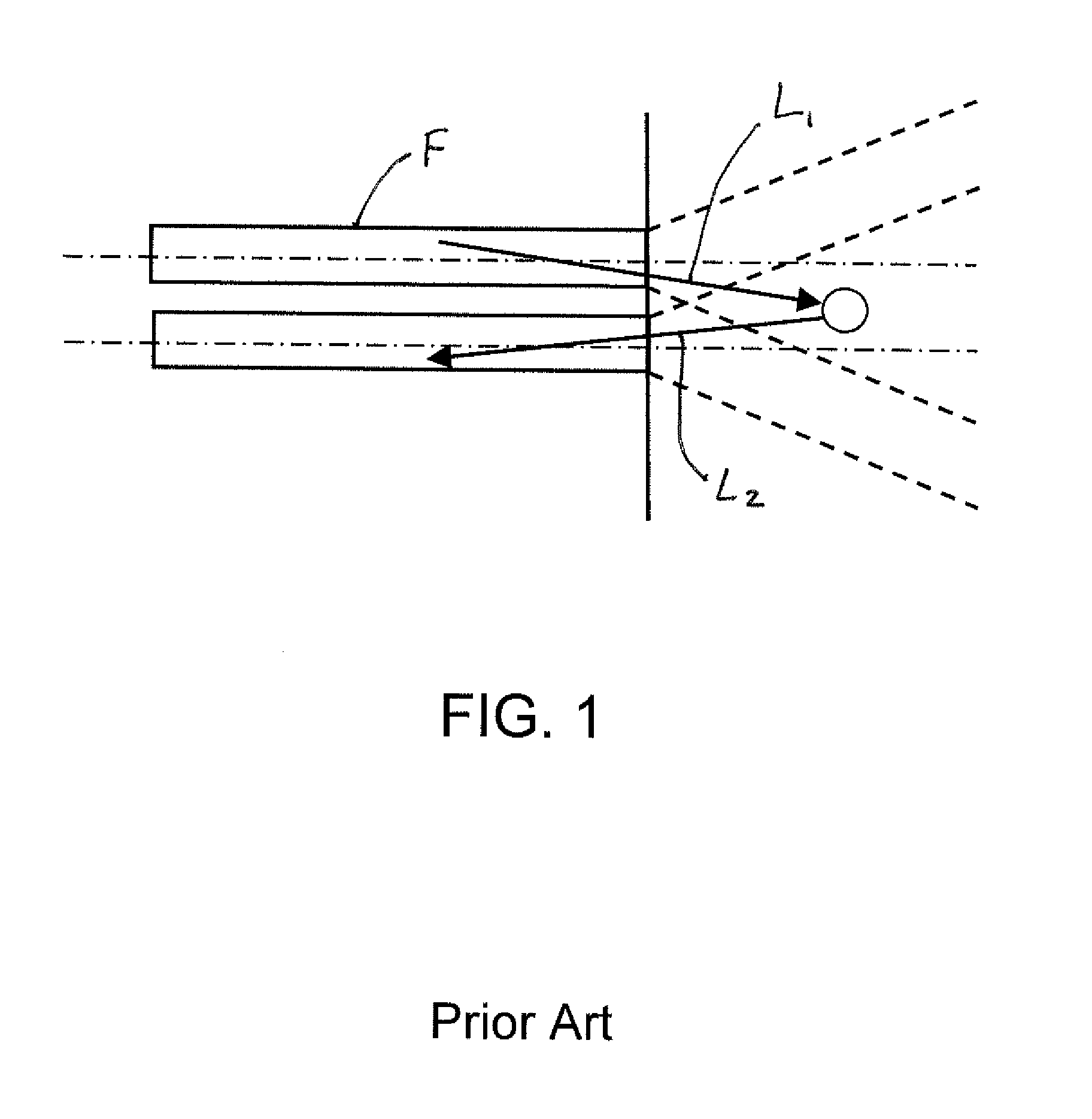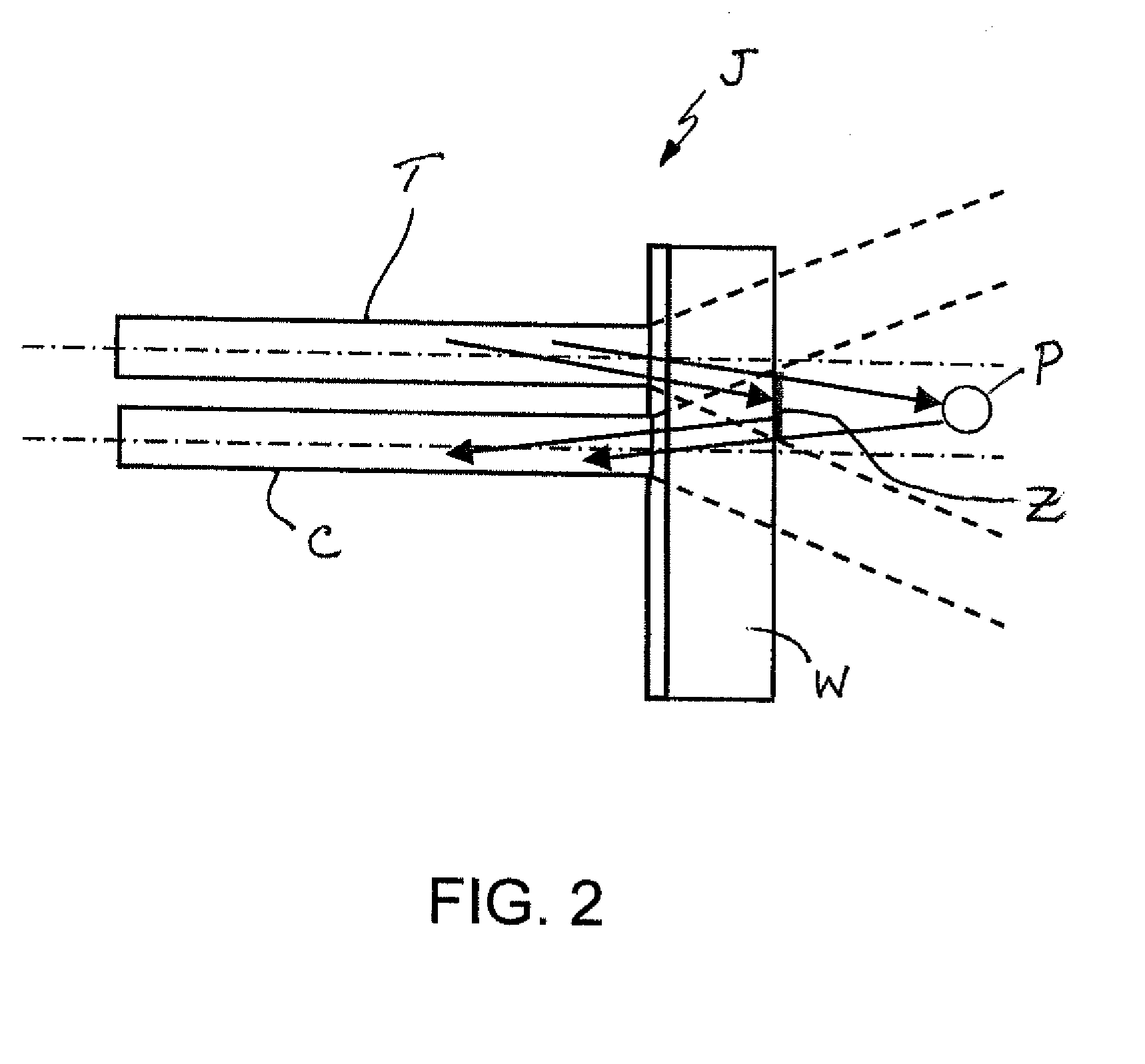Apparatus and method for improved processing of food products
- Summary
- Abstract
- Description
- Claims
- Application Information
AI Technical Summary
Benefits of technology
Problems solved by technology
Method used
Image
Examples
example 1
[0050]A probe was made with metal coated fiber optics to prevent crosstalk between the fibers. The fibers used for the transmission of incident light and the collection of backscatter light had an outer diameter of 287 microns. The fiber core was 200 microns, cladding 220 microns in diameter. The fibers had a numerical aperture of 0.12 that reduced the cone spread of light and minimized the distance between the delivery fiber and the receiving fiber. The thickness of the optical grease was 127 microns with a numerical aperture of 1.6. The thickness of the sapphire window was 635 microns with a numerical aperture of 1.5. The diameter of the cone of the light increased from 200 microns at the fiber optical grease interface to 219 microns at the optical grease-sapphire window interface to 260 microns at the sapphire window-product interface. Consequently the minimum separation distance between the centerline of the delivery fiber and the centerline of the receiving fiber in order to av...
example 2
[0051]A probe is made with transmission and receiving fibers having a 0.22 numerical aperture. The cone diameters at the fiber-grease, grease-sapphire and sapphire-product interfaces are 200, 235 and 423 microns respectively. As a consequence, in order to avoid specular and diffuse reflectance the minimum separation distance for the delivery and receiving fibers using the numerical aperture 0.22 fiber is 423 microns. Since the fiber has a diameter with cladding of 287 microns then there must be a 137 micron space between the fibers.
[0052]The foregoing has been presented for purposes of illustration and description. It is not intended to be exhaustive or to limit the embodiments to the precise form disclosed. Obvious modifications and variations are possible in light of the above teachings. For example, while the probe and method are described as being used to monitor the coagulation of milk in the cheese making process, they could be used to monitor and measure other compositions an...
PUM
 Login to View More
Login to View More Abstract
Description
Claims
Application Information
 Login to View More
Login to View More - R&D
- Intellectual Property
- Life Sciences
- Materials
- Tech Scout
- Unparalleled Data Quality
- Higher Quality Content
- 60% Fewer Hallucinations
Browse by: Latest US Patents, China's latest patents, Technical Efficacy Thesaurus, Application Domain, Technology Topic, Popular Technical Reports.
© 2025 PatSnap. All rights reserved.Legal|Privacy policy|Modern Slavery Act Transparency Statement|Sitemap|About US| Contact US: help@patsnap.com



